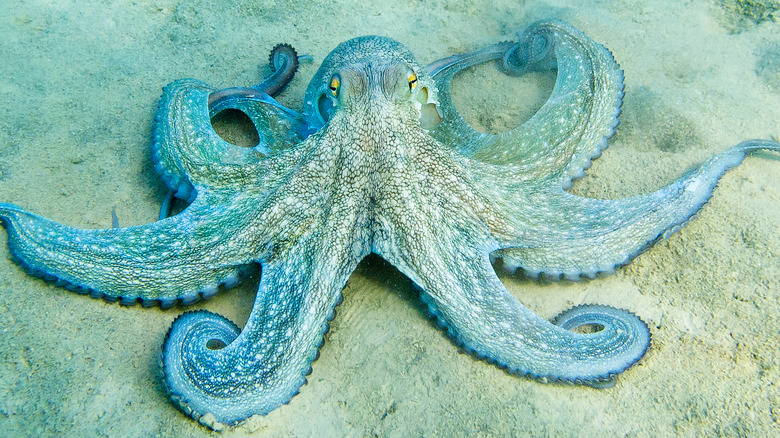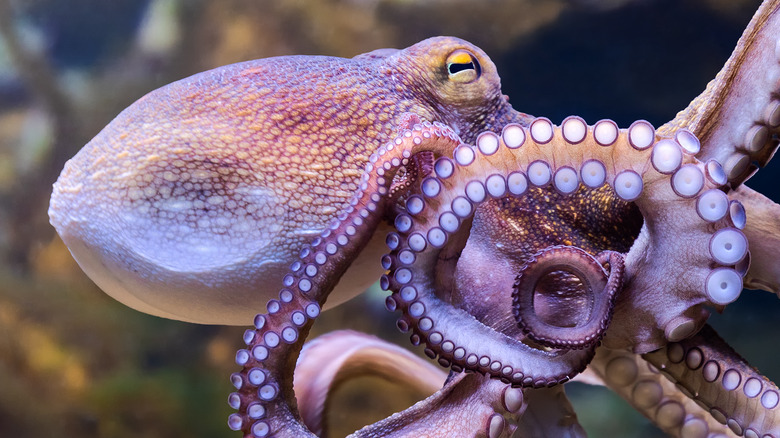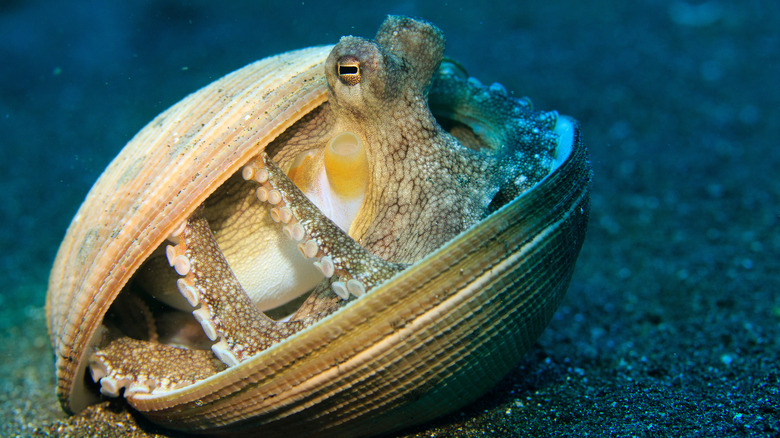Octopuses Are More Like Us Than You Thought
When you look at an octopus, you might not think that humans share many characteristics with them. After all, they have no bones, have three hearts, and use their arms to scale the ocean floor (via the National Wildlife Foundation). Their arms even have a set of neurons that allows them to move independently of their brain. That said, octopuses can also control their arms with their brain, reports Discovery Magazine.
While it's true that we don't have a lot in common with these masters of camouflage, octopuses share a couple of features that make them stand out from the rest of the animals taking up residence in the sea. Experts think that some octopus behavior suggests they may even possess a consciousness, like humans. In addition, they have an expansive system of millions of neurons running through their bodies, which is the largest nervous system among invertebrates, per Frontiers of Systems Neuroscience.
Humans and octopuses share similar coding genes
So what is it that makes octopuses have this complex nervous system? A report published in Science Advances reveals that it comes down to an extensive reserve of microRNA (miRNA), coding genes that deliver messages that influence protein production in cells. In humans, miRNAs are linked to cell functions and the development of the central nervous system, according to a report published in the International Journal of Molecular Sciences (IJMS).
Octopuses are the only invertebrates that have these kinds of cells, and in a way it makes sense. At least it does to Professor Nikolaus Rajewsky, Scientific Director of the Berlin Institute for Medical Systems Biology of the Max Delbrück Center and co-author of the report. He explains that these cells might be responsible for developing more complex brains, and as a result, intelligence. Lead author Grygoriy Zolotarov agrees, noting that other mollusks and oysters, which don't have miRNA, aren't known for being as smart as octopuses.
Other ways octopuses are like humans
Octopuses have been delighting researchers with their intelligence for years. Rajewsky points out that they are curious and can remember certain things, including people. Their capacity to remember also leads some to believe they have a consciousness, per the IJMS. Evidence even suggests that because they sometimes change color while they sleep, they might even dream (via Discovery).
Earlier research indicates that octopuses behave like humans in other ways, too. For instance, one octopus cleaned the front of its den after collecting food and then appeared to position rocks blocking the opening of its den before sleeping. Another study showed that an octopus seemed to be "playing" with a pill bottle. Another one even learned to open the cap of a childproof Tylenol bottle, reports The Week. And another even unscrewed the lid of a jar from the inside of the jar, per Discovery.


